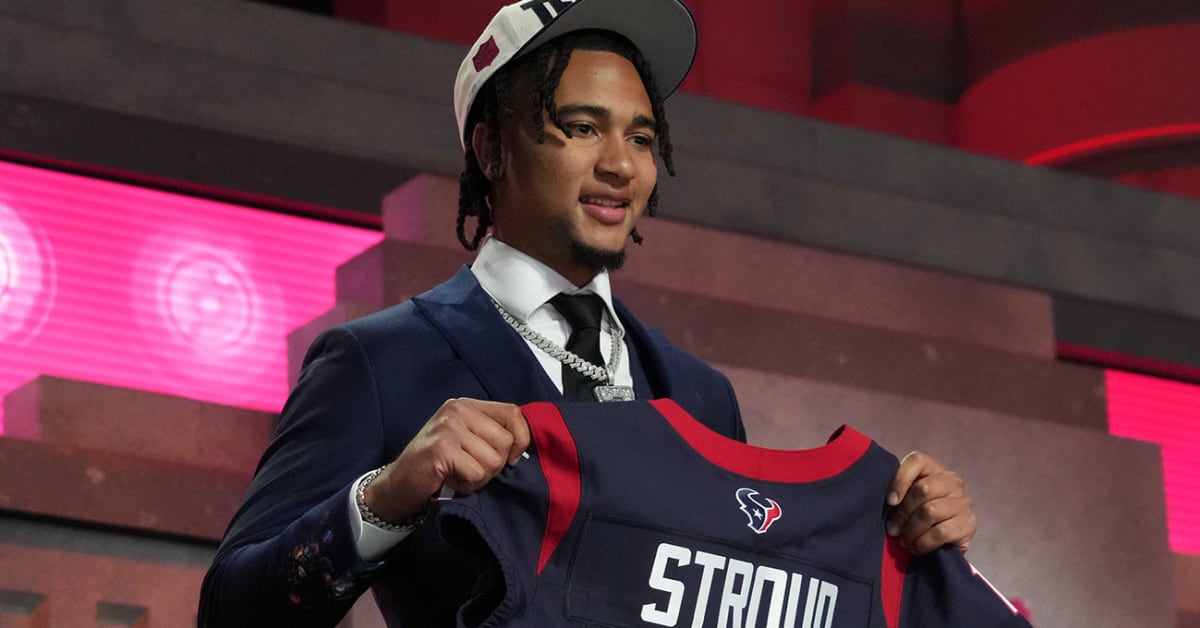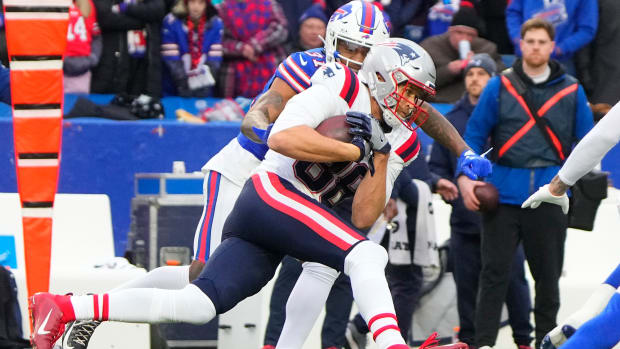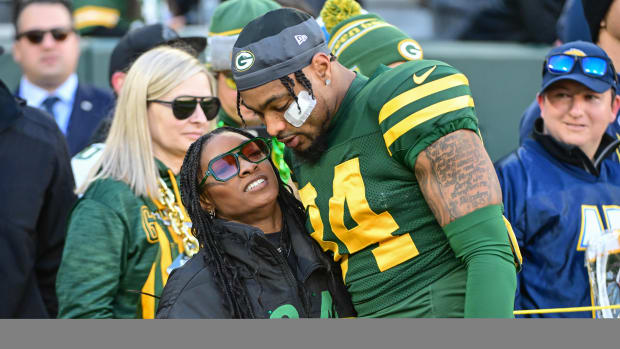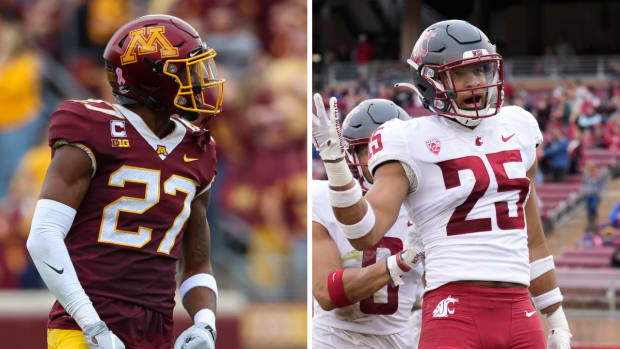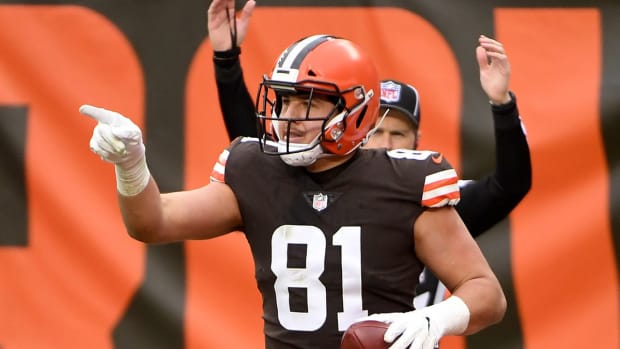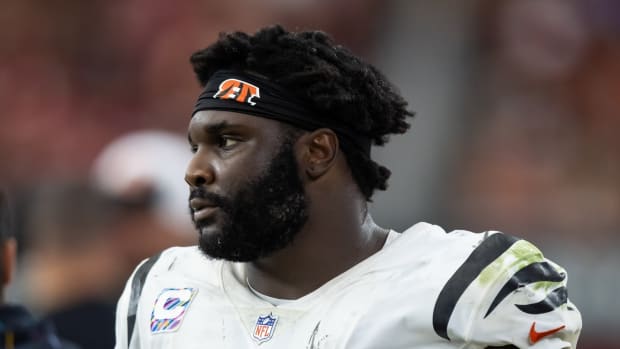C.J. Stroud Proved That Future QB Draft Prospects Shouldn’t Take the S2 Test
In a class where the draft industrial complex determined one quarterback was too short (Bryce Young), one quarterback was too raw (Anthony Richardson) and one quarterback was too infatuated with mayonnaise (Will Levis), spurring a long evening in front of blood-sucking network cameras for Levis, it’s surprising I’m still most sympathetic toward C.J. Stroud.
This is because Stroud, the Ohio State product now headed to the Texans, spent the weeks leading up to the draft and the days following it answering questions about a test he reportedly did poorly on, as if any singular assessment is wholly indicative of someone’s intelligence.
To be clear, I have no problem with Bob McGinn, who first reported for Go Long that Stroud received an 18% on the S2 cognition test (here’s a primer on what the test measures). McGinn, who has been covering the NFL longer than I’ve been alive, is one of the most accurate draft experts walking the Earth. His goal has always been to relay to you what scouts relay to him, and thus, what scouts are discussing in team meeting rooms. My problem is with what happens when that information (like bad Wonderlic scores that have leaked for years) leaves his capable hands, and we, in the media, start using it as an automatic shorthand for the possession of, or lack of, intelligence. It’s great Young nearly broke the scale on the S2, which I’d heard back in the winter when reporting our magazine profile of him. That may help explain why he’s such a good quarterback.
It’s also potentially meaningless that Stroud did poorly on the test. The GM who drafted him, Nick Caserio, seemed to be fine enough with Stroud’s processing ability to make him the No. 2 pick. Ran Carthon, the Titans’ GM who, according to our Albert Breer, considered trading up to No. 3 if Stroud was still on the board, was probably all right with an 18%, too.
Because it didn’t really affect draft proceedings (Levis and Richardson scored higher than Stroud on the S2, according to McGinn) we didn’t necessarily see the pushback I expected. That said, I feel like quarterbacks should consider opting out of this—and many other—tests in the future, and quietly may be already. Based on how public the results became, there truly is no advantage for a quarterback to take it. While it may have ultimately helped Young’s stock, it’s hard to go into a test that claims to accurately quantify traits such as instincts, angle control, motor learning and risk tendency without knowing how you will perform and, ultimately, without knowing whether those results will be weaponized against you.
Watch the NFL with fuboTV. Start your free trial today.
The predraft process is already ridiculous, archaic and, to some, insensitive from a cultural standpoint. Unless you are someone like Richardson, who is certain that specific, replicable athletic traits will boost an already rising draft stock and make up for what a team could be unsure of on tape, there continues to be absolutely no reason for these players to step in front of a pack of scouts, a panel of cognitive experts or an eighth-grade English teacher demanding a list of transitive and intransitive verbs. If a team needs the S2 test to round out its evaluation of a player, what does that say about its own abilities to measure someone’s schematic fit, grade their film and pry their coaches for usable information about their personality and leadership? Organizations can claim it’s just another piece of data, but it’s also, at this point, up to the player as to whether he has to supply that data.
Perhaps I’m settling some old scores with the folks at the Scholastic Assessment Test and, my least favorite, the California Achievement Test (anyone else get their results in grade school displayed as a percentile in a bar graph that was illustrated within a cat’s tail, and remember seeing your parents realize for the first time that they hadn’t birthed an Ivy Leaguer?). I think most tests can highlight why a fast person is fast, or why a smart person is smart, or why a strong person is strong. And, at the risk of being sued by any of these exams, I’m sure their processes are scientifically validated.
But I think, especially when it comes to the quarterback position, where we just watched someone like Levis lose more than $20 million over the course of a few hours for one reason or another, there is no reason to give teams another reason. The scores got out. They will get out again. Maybe the S2 test brings out the best in you. Maybe, like the SAT, it keeps you out of Binghamton University (last gripe, I promise).
To me, that makes Stroud worth rallying behind. It’s cool he did poorly on the test, and the Texans took him, anyway. It’s brave he took the shrapnel for the quarterback classes of 2024, ’25 and ’26, which should be wary of what they’re signing up for and how the information might end up coming back to haunt them. It’s encouraging to consider a world where all of these guys stop being picked apart for what initially feels like football reasons but ends up feeling like something else by the time it’s all said and done.
































